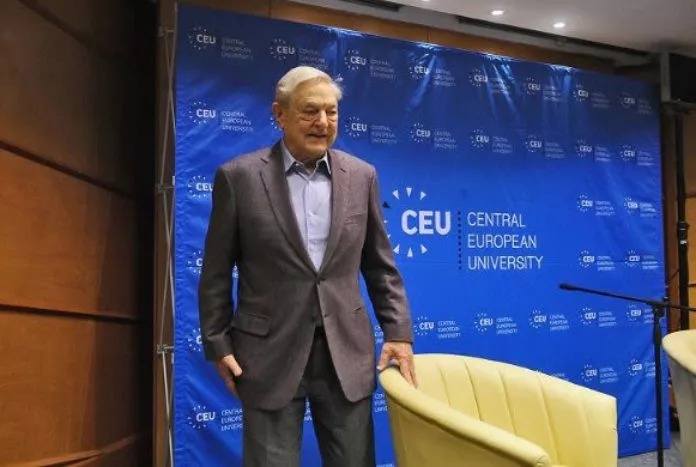Central European University (a.k.a. CEU), an international postgraduate institution located in Budapest, was founded in 1991. A private, American university in central Europe, it quickly became a space for academic and research excellence, and now it ranks consistently amongst the top 200 universities in the world, plus it owns the largest English language library in continental Europe. Last week, a huge controversy broke out as news emerged that Hungarian Prime Minister Viktor Orbán had submitted a bill to the Hungarian Parliament late Tuesday whereby non-EU universities issuing diplomas in Hungary (such as CEU) would be required by law to establish a campus in their home country. Widely known by his right-wing approach to politics, Orbán has accused CEU of legal cheating and unfair competition vis-à-vis other Hungarian universities: “There is competition among universities and it is inexplicable why we should put our own universities at a disadvantage […] while securing an unfair advantage for the foreign university” (…) Hungary is a sovereign country, it supports knowledge in all cases but does not tolerate cheating”. At the other end of the spectrum, CEU has reacted, inter alia, by creating an online petition “to save CEU” under the slogan “Academic Freedom Matters” and the hashtag “#IStandwithCEU”, both of which measures have gathered a significant popular and intellectual support. In particular, Michael Ignatieff, CEU’s President and Rector is of the opinion that “the proposed legislation targets CEU directly and is therefore discriminatory and unacceptable (…) Any legislation that would make it difficult for CEU to operate in Hungary would destroy this fabric of cooperation with Hungarian institutions and the Hungarian public and would damage Hungary’s long-held reputation as a center of innovation, academic excellence and scientific inquiry”. On these grounds, CEU has called for a negotiation between both parties that has proved ultimately unfruitful, as no common ground was found last Friday. But, you might wonder, who’s right in the CEU controversy? Well, both of them and none at the same time.
By heavily relying on abstract claims in the name of protecting either national culture and economy (Orbán) or academic freedom and democracy (CEU), I claim that both parties (albeit perhaps not to the same extent) are disingenously obfuscating the political over-determinations of this controversy, the elucidation of which is necessary if Orban and CEU are to reach an agreement, let alone a satisfactory one. In particular, the following ought to be understood:
- Even though Hungarian officials have denied the existence of any links between their proposed bill and a specific targeting of either Soros or the CEU, the fact that the new requirement exclusively affects CEU (as opposed to any of Hungary’s 27 other non-EU universities) makes it clear that Orban (a staunch defender of nationalist protectionism) is taking advantage of Trump’s recent appointment at the White House to deliberately use lawfare against his ideological archenemy: globalist George Soros.
- CEU’s lightning rise and consolidation amongst the top universities in the world was significantly influenced by the tremendous amount of funding injected by Hungarian-born US financier and globalist George Soros. Did that contribution afford unique opportunities for students and faculty alike to reach academic excellence and international reputation? Undoubtedly so. The question, though, is at what expense? Well, perhaps at that of advancing Soros’ political agenda , i.e., of sacrificing the kind of economic and political independence without which there can not be such a thing as academic freedom in the pursuit of knowledge, particularly in areas like the social sciences and the humanities (exactly those around which CEU’s endeavours revolve)…
In sum, CEU has been unlucky enough to find itself in the wrong place, at the wrong time, i.e., caught in the middle of an ideological crossfire between Orbán and Soros whose only purpose is that of furthering their respective socio-political agendas. As Žižek has remarked, today’s ideology screams “Do not think, just act!” ever so louder. This controversy is a case in point, for such political injunction finds a clear articulation under both Orbán’s “just favour the proposed legislation!” and CEU’s “just sign the petition!”. Any thinker’s primary allegiance, though, ought to reside in the bigger ideological picture over-determining this struggle, mindful of the fact that national culture, knowledge and academic freedom do not exist in a vacuum, but rather they are political and always will be.







